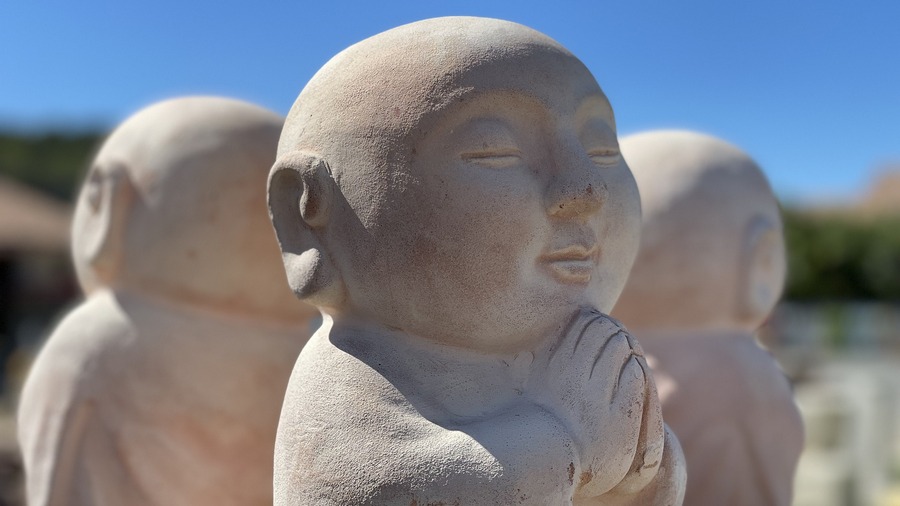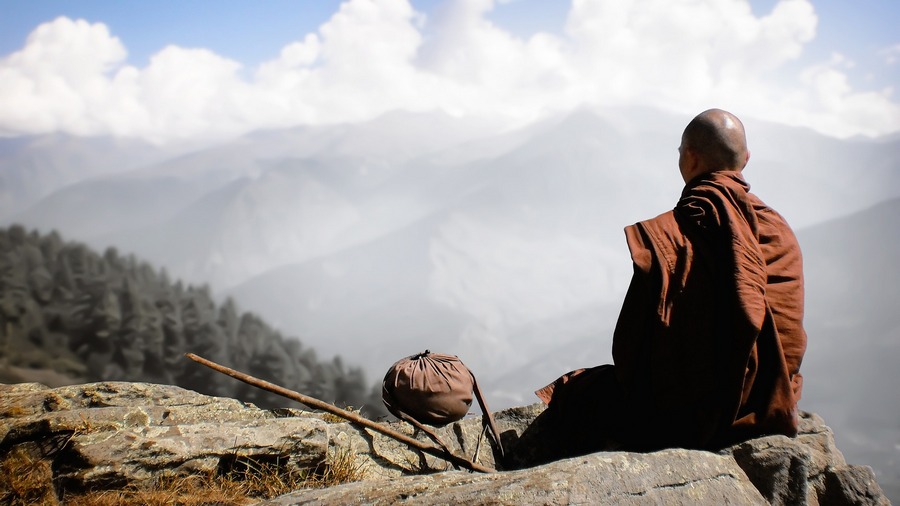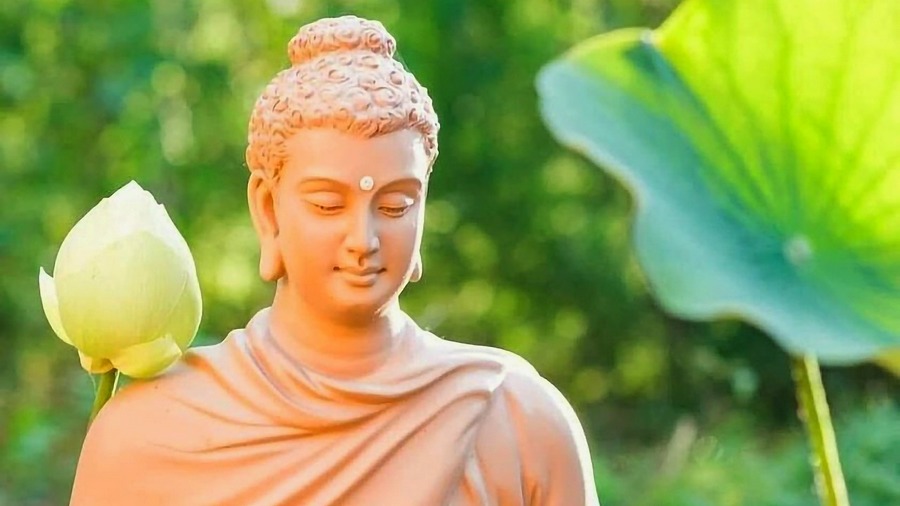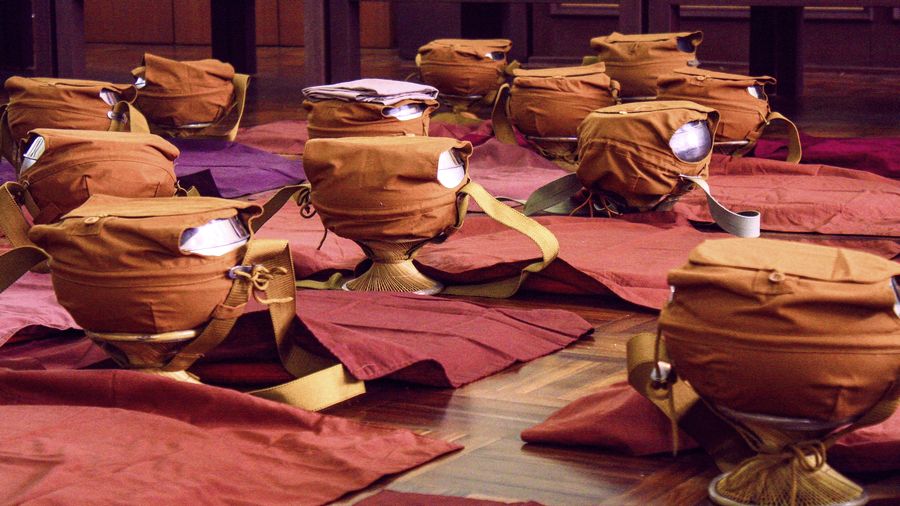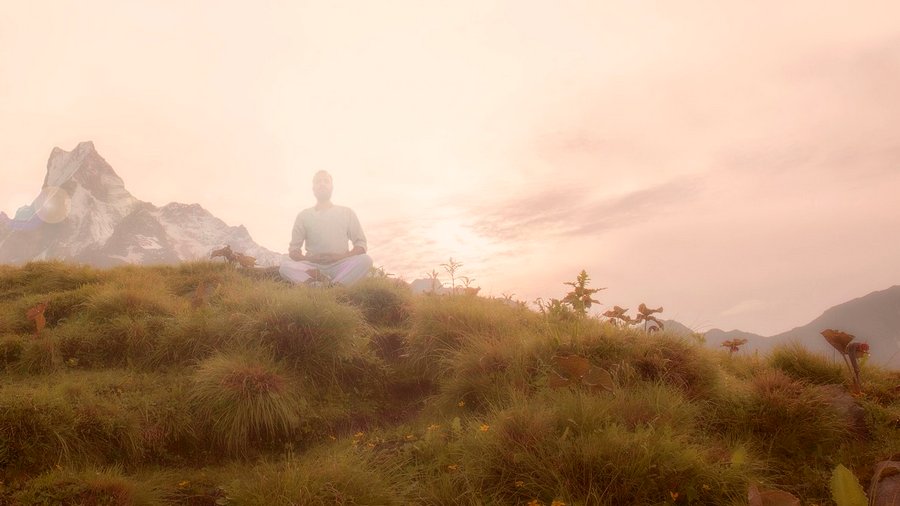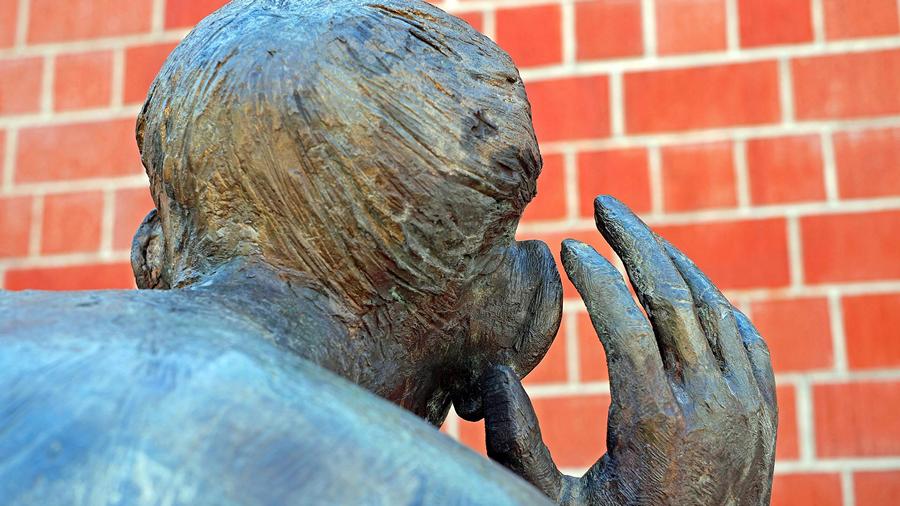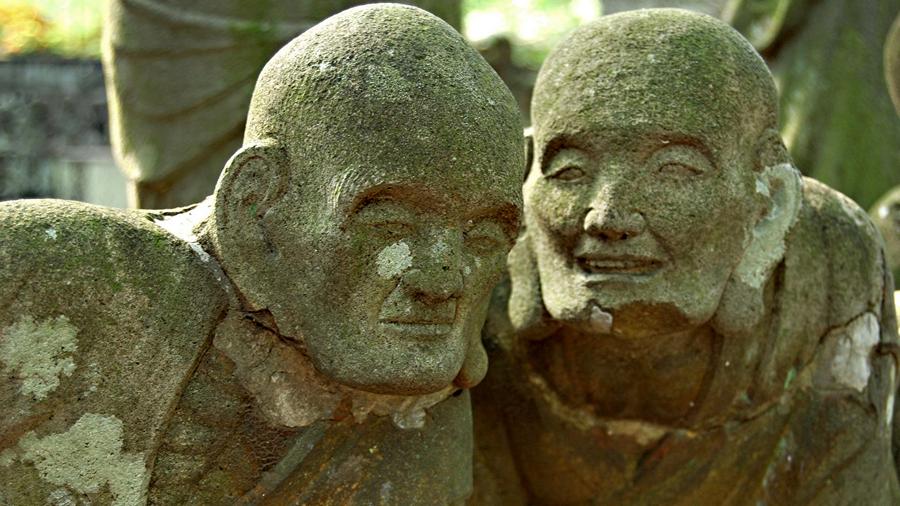I have heard that on one occasion the Blessed One was staying near Campā on the shore of Gaggarā Lake. Then a large number of lay followers from Campā went to Ven. Sāriputta and, on arrival, having bowed down to him, sat to one side. As they were sitting there they said to Ven. Sāriputta: “It has been a long time, venerable sir, since we have had a chance to hear a Dhamma talk in the Blessed One’s presence. It would be good if we could get to hear a Dhamma talk in the Blessed One’s presence.”
“Then in that case, my friends, come again on the next uposatha day, and perhaps you’ll get to hear a Dhamma talk in the Blessed One’s presence.”
“As you say, venerable sir,” the lay followers from Campā said to Ven. Sāriputta. Rising from their seats, bowing down to him, and then circling him—keeping him on their right—they left.
Then, on the following uposatha day, the lay followers from Campā went to Ven. Sāriputta and, on arrival, having bowed down to him, stood to one side. Then Ven. Sāriputta, together with the lay followers from Campā, went to the Blessed One and on arrival, having bowed down to him, sat to one side. As he was sitting there, he said to the Blessed One: “Might there be the case where a person gives a gift of a certain sort and it does not bear great fruit or great benefit, whereas another person gives a gift of the same sort and it bears great fruit and great benefit?”
“Yes, Sāriputta, there would be the case where a person gives a gift of a certain sort and it does not bear great fruit or great benefit, whereas another person gives a gift of the same sort and it bears great fruit and great benefit.”
“Lord, what is the cause, what is the reason, why a person gives a gift of a certain sort and it does not bear great fruit or great benefit, whereas another person gives a gift of the same sort and it bears great fruit and great benefit?”
“Sāriputta, there is the case where a person gives a gift seeking his own profit, with a mind attached (to the reward), seeking to store up for himself (with the thought), ‘I’ll enjoy this after death.’ He gives his gift—food, drink, clothing, a vehicle; a garland, perfume, & ointment; bedding, shelter, & a lamp—to a contemplative or a brahman. What do you think, Sāriputta? Might a person give such a gift as this?”
“Yes, lord.”
“Having given this gift seeking his own profit—with a mind attached (to the reward), seeking to store up for himself, (with the thought), ‘I’ll enjoy this after death’—on the break-up of the body, after death, he reappears in the company of the Four Great Kings. Then, having exhausted that action, that power, that status, that sovereignty, he is a returner, coming back to this world.
“Then there is the case of a person who gives a gift not seeking his own profit, not with a mind attached (to the reward), not seeking to store up for himself, nor (with the thought), ‘I’ll enjoy this after death.’ Instead, he gives a gift with the thought, ‘Giving is good.’ He gives his gift—food, drink, clothing, a vehicle; a garland, perfume, & ointment; bedding, shelter, & a lamp—to a contemplative or a brahman. What do you think, Sāriputta? Might a person give such a gift as this?”
“Yes, lord.”
“Having given this gift with the thought, ‘Giving is good,’ on the break-up of the body, after death, he reappears in the company of the Devas of the Thirty-three. Then, having exhausted that action, that power, that status, that sovereignty, he is a returner, coming back to this world.
“Or, instead of thinking, ‘Giving is good,’ he gives a gift with the thought, ‘This was given in the past, done in the past, by my father & grandfather. It would not be right for me to let this old family custom be discontinued’… on the break-up of the body, after death, he reappears in the company of the Devas of the Hours. Then, having exhausted that action, that power, that status, that sovereignty, he is a returner, coming back to this world.
“Or, instead… he gives a gift with the thought, ‘I am well-off. These are not well-off. It would not be right for me, being well-off, not to give a gift to those who are not well-off’ … on the break-up of the body, after death, he reappears in the company of the Contented Devas. Then, having exhausted that action, that power, that status, that sovereignty, he is a returner, coming back to this world.
“Or, instead… he gives a gift with the thought, ‘Just as there were the great sacrifices of the sages of the past—Aṭṭhaka, Vāmaka, Vāmadeva, Vessāmitta, Yamadaggi, Aṇgīrasa, Bhāradvāja, Vāseṭṭha, Kassapa, & Bhagu—in the same way will this be my distribution of gifts’ … on the break-up of the body, after death, he reappears in the company of the Devas who Delight in Creation. Then, having exhausted that action, that power, that status, that sovereignty, he is a returner, coming back to this world.
“Or, instead… he gives a gift with the thought, ‘When this gift of mine is given, it makes the mind serene. Gratification & joy arise’ … on the break-up of the body, after death, he reappears in the company of the Devas Wielding power over the creations of others. Then, having exhausted that action, that power, that status, that sovereignty, he is a returner, coming back to this world.
“Or, instead of thinking, ‘When this gift of mine is given, it makes the mind serene. Gratification & joy arise,’ he gives a gift with the thought, ‘This is an ornament for the mind, a support for the mind.’ He gives his gift—food, drink, clothing, a vehicle; a garland, perfume, & ointment; bedding, shelter, & a lamp—to a contemplative or a brahman. What do you think, Sāriputta? Might a person give such a gift as this?”
“Yes, lord.”
“Having given this, not seeking his own profit, not with a mind attached (to the reward), not seeking to store up for himself, nor (with the thought), ‘I’ll enjoy this after death,’
—nor with the thought, ‘Giving is good,’
—nor with the thought, ‘This was given in the past, done in the past, by my father & grandfather. It would not be right for me to let this old family custom be discontinued,’
—nor with the thought, ‘I am well-off. These are not well-off. It would not be right for me, being well-off, not to give a gift to those who are not well-off,’
—nor with the thought, ‘Just as there were the great sacrifices of the sages of the past—Aṭṭhaka, Vāmaka, Vāmadeva, Vessāmitta, Yamadaggi, Aṇgīrasa, Bhāradvāja, Vāseṭṭha, Kassapa, & Bhagu—in the same way this will be my distribution of gifts,’
—nor with the thought, ‘When this gift of mine is given, it makes the mind serene. Gratification & joy arise,’
—but with the thought, ‘This is an ornament for the mind, a support for the mind’—on the break-up of the body, after death, he reappears in the company of Brahmā’s Retinue. Then, having exhausted that action, that power, that status, that sovereignty, he is a non-returner. He does not come back to this world.
“This, Sāriputta, is the cause, this is the reason, why a person gives a gift of a certain sort and it does not bear great fruit or great benefit, whereas another person gives a gift of the same sort and it bears great fruit and great benefit.”
Read this translation of Aṅguttara Nikāya 7.52 Dāna Sutta. Giving by Bhikkhu Ṭhanissaro on DhammaTalks.org. Or read a different translation on SuttaCentral.net. Or listen on SC-Voice.net. Or explore the Pali on DigitalPaliReader.online.
Or read a translation in Deutsch, Русский, বাংলা, Español, Français, Bahasa Indonesia, 日本語, မြန်မာဘာသာ, සිංහල, ไทย, Tiếng Việt, or 汉语. Learn how to find your language.

 Translations by Bhikkhu Ṭhanissaro are released under the Creative Commons Attribution-NonCommercial 4.0 Unported License. The author considers any sale, including by non-profit entities for non-profit purposes, to be ‘Commercial’ and a copyright violation. To view a copy of this license, visit the
Translations by Bhikkhu Ṭhanissaro are released under the Creative Commons Attribution-NonCommercial 4.0 Unported License. The author considers any sale, including by non-profit entities for non-profit purposes, to be ‘Commercial’ and a copyright violation. To view a copy of this license, visit the 